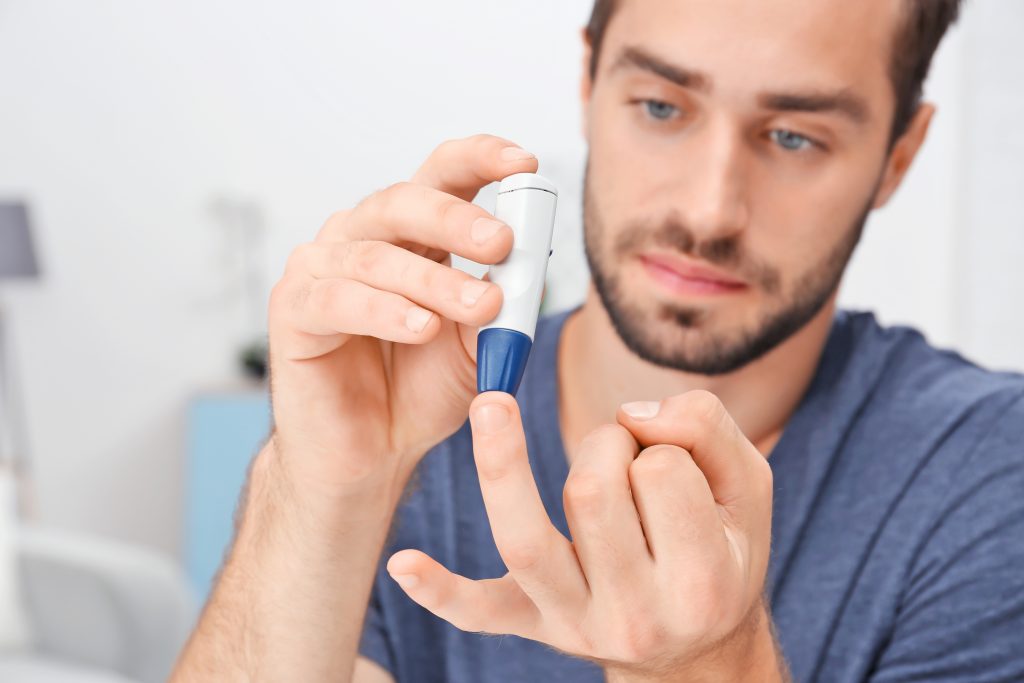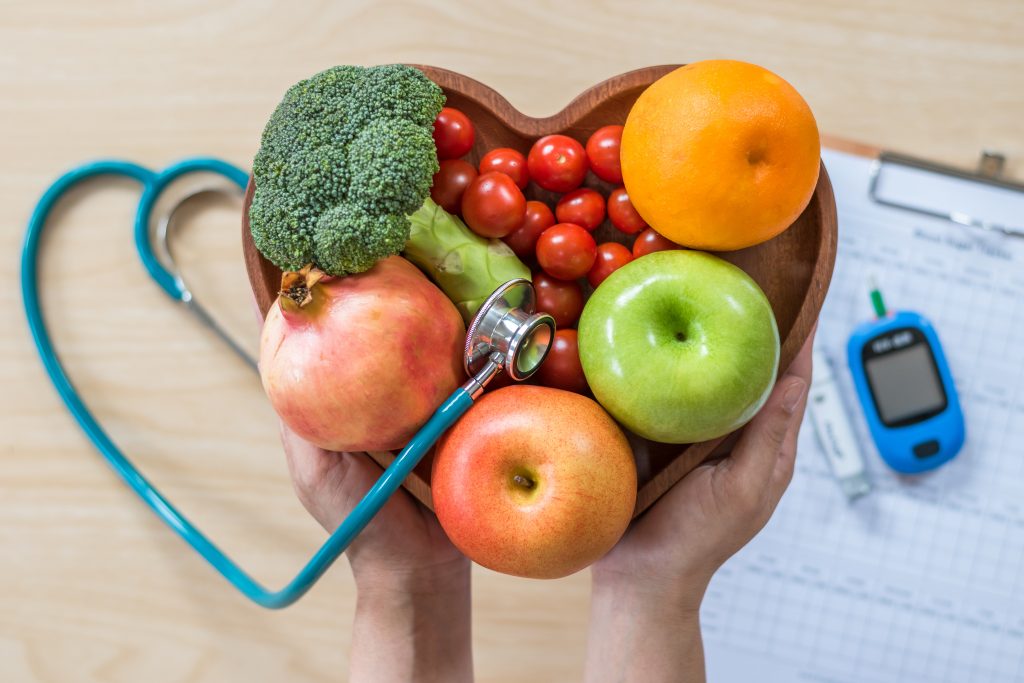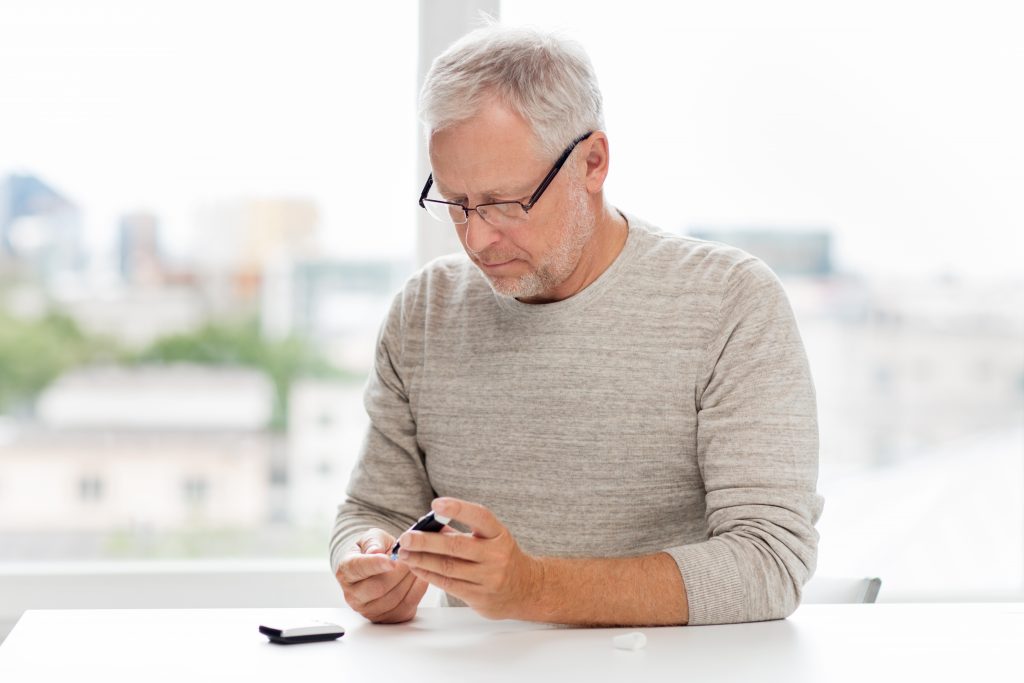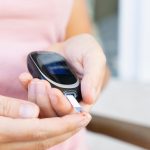April 7, 2022
Can Type 2 Diabetes Be Reversed?
Type 2 diabetes is a serious medical condition that affects over 35 million Americans. Though it is most common in adults, more and more children are diagnosed with the condition each year. Long believed to be lifelong and chronic, type 2 diabetes can be managed or even reversed with the right treatments and lifestyle changes.
Read on to learn more about reversing type 2 diabetes and maintain the reversal to help you look and feel your best.
What Is Type 2 Diabetes?
Type 2 diabetes affects how your body converts food into energy. When you eat, most of the food is broken down into glucose (sugar) and released into the bloodstream. Then, the pancreas is triggered to release insulin. Insulin moves glucose from your blood into cells that use it for energy.
If you have type 2 diabetes, your cells don’t respond as they should to insulin. This is known as “insulin resistance”. Your pancreas then secretes more insulin to get cells to respond. Eventually, your blood sugar rises. This can lead to damage in the body and serious health problems, including kidney disease, heart disease, and vision loss.
Magdalena Chavez, PA-C, a physician assistant in Bedford says, “patients with type 2 diabetes are making plenty of insulin, but other cells in the body are not receiving and using the insulin appropriately anymore. When this happens, those cells in organs such as the liver and muscles are not able to respond to insulin and use it to take in glucose for energy. Instead, the glucose stays in the blood stream. So in both types of diabetes, the problem is that we end up with too much glucose in the blood stream.”
How Is Type 2 Diabetes Treated?
There are many types of medications that can help lower blood sugar levels in people with type 2 diabetes. Sometimes only one medication is needed. Other times, a combination of medications is required to manage the condition.
Diabetes medications are oral drugs (taken by mouth) or injected subcutaneously. Common type 2 diabetes medications include:
- DPP-4 inhibitors
- GLP-1 receptor agonists
- Insulin
- Biguanides such as metformin
- Sulfonylureas
- SGLT2 inhibitors
- Thiazolidinediones
Not everyone with type 2 diabetes requires medication. Some people can manage and even reverse type 2 diabetes by making different lifestyle choices.
Can Type 2 Diabetes Be Reversed?
“I wouldn’t describe Type 2 Diabetes as able to be reversed, but it can be ‘controlled’ by diet and exercise, often to the extent that medications are no longer necessary. I would call this diet-controlled diabetes,” Chavez explains.
Unlike short-term illnesses that go away after treatment, diabetes is a chronic condition that requires management throughout your lifetime.
But don’t let that discourage you. Type 2 diabetes can be managed to the point where it is essentially in remission. This is called “long-term reversal”.
Remission is more likely in the early stages of diabetes or after significant weight loss. One study found that nearly 50% of those who had bariatric surgery for weight loss reported long-term remission of type 2 diabetes.
So, can type 2 diabetes be reversed? In a word: yes. It takes some effort and may require you to make some lifestyle changes, but it is attainable and worth the effort.
How to Reverse Type 2 Diabetes
Many people find that type 2 diabetes can be reversed — or go into remission — by maintaining a healthy weight, eating a diabetes-friendly diet, and regular physical activity.
If you want to reverse type 2 diabetes, these guidelines may help.
Eat a Diabetes-Friendly Diet
Aim to eat a balanced, nutritious diet with plenty of fruits and vegetables, lean meats, and plant-based protein sources. You’ll want to cut down on your intake of sugar and processed foods.
“It’s essential to limit the high glucose foods like sweets and meals that are heavy on the carbohydrates. You can eat some carbohydrates, but make sure to limit the portion size, pair with some lean protein and healthy fats, and try to aim for carbohydrates that have a lower glycemic index such as vegetables and whole grains,” Chavez recommends.
You can eat some carbohydrates, but make sure to limit the portion size, pair with some lean protein and healthy fats, and try to aim for carbohydrates that have a lower glycemic index such as vegetables and whole grains,” Chavez recommends.
The American Diabetes Association recommends the “diabetes plate method” which suggests filling half of your plate with non-starchy vegetables, ¼ of your plate with lean protein, and ¼ of your plate with carbohydrate foods (e.g., grains, beans, dairy).
Other diets that are beneficial for reversing type 2 diabetes include:
- DASH diet
- Mediterranean diet
- Paleolithic (Paleo) diet
- Gluten-free diet
Control your Carb Intake
While some carbohydrates are necessary, they can raise your blood sugar quickly and higher than other nutrients. Spread your carbohydrate consumption throughout the day rather than eating a carb-rich meal in one sitting.
Get Regular Physical Activity
Your body uses sugar as energy.
“Diet and exercise are always the key. It’s important to get at least 30 minutes a day, 5 days a week of cardio. But resistance training to build muscle is also essential for combatting insulin resistance,” Chavez explains.
Exercise also helps keep your heart healthy, improves your mood, and may help you sleep better.
Exercises recommended for diabetics include brisk walking, dancing, yoga, swimming, weight training, cycling, team sports, and rowing machine exercises. If you’re new to exercise or haven’t done it in a while, start slow and give your body a chance to adjust to regular physical activity.
Maintain a Healthy Weight
Losing any extra weight is the best way to reverse type 2 diabetes. This is partly because excess body fat stored in the liver and pancreas affects insulin production and how the body uses it. One study found that 61% of participants who lost weight and kept it off were successful in reversing type 2 diabetes.
Stay Hydrated
Drinking plenty of water is beneficial for virtually every aspect of your health. For reversing type 2 diabetes, aim to drink at least 8 8-ounce glasses of water each day. Water helps flush out excess toxins and sugar from the body, helping regulate blood sugar levels and keeping kidneys healthy. Limit your intake of sodas, juices, and alcohol.
Keep Up with Doctor Appointments
Be sure to attend all of your scheduled doctor appointments and continue taking the medication until your doctor says it is okay to stop. Getting regular wellness checks with your doctor may help detect diabetes-related complications and other health concerns early. Your doctor can also connect you with a dietician or diabetes educator who can guide the best choices to make to reverse type 2 diabetes or maintain remission.
Takeaways
Type 2 diabetes is a chronic condition with no cure, and if you have it, you’ll need to manage it for the rest of your life. However, it is possible to manage type 2 diabetes to the point where you have normal blood sugar levels without requiring medication.
 “For most patients with diabetes mellitus, an a1c of 6.5% indicates well controlled diabetes. There may be some individuals with modified goals based on other health factors including age and other medical conditions, so talk to your primary care provider or endocrinologist to see where your goal should be,” Chavez adds.
“For most patients with diabetes mellitus, an a1c of 6.5% indicates well controlled diabetes. There may be some individuals with modified goals based on other health factors including age and other medical conditions, so talk to your primary care provider or endocrinologist to see where your goal should be,” Chavez adds.
Before you make any significant lifestyle changes, speak with your healthcare provider. They can help guide you to a diabetes-friendly diet, exercise, and other ways to help you manage the condition. They will also follow your progress and help you decide when to stop taking medication if you have successfully reversed the condition.
If you reverse your type 2 diabetes, you will need to continue with healthy lifestyle habits to help your body regulate its blood sugar levels independent of medication. The risk of relapse is high if you return to previous habits, so it’s imperative to be consistent with your healthy choices.
Chavez says, “at the end of the day, the glucose numbers and labs are important, but keep in mind that make changes to your diet and exercise routine will have a huge impact in your mood and your energy level. When your glucose is controlled, you feel better!”
Treating Diabetes with Healthcare Associates of Texas
Healthcare Associates of Texas is home to a large team of board-certified medical professionals who can work with you to treat high blood pressure. Our doctors can talk to you in more detail about the link between dehydration and blood pressure, and what you can start doing today to improve your overall health. Click here to find your nearest location and request an appointment.
DISCLAIMER
The information featured in this site is general in nature. The site provides health information designed to complement your personal health management. It does not provide medical advice or health services and is not meant to replace professional advice or imply coverage of specific clinical services or products. The inclusion of links to other web sites does not imply any endorsement of the material on such websites.




